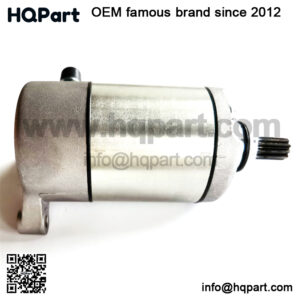What Is the Purpose of a Motor Starter?
As we mentioned before, the product is essentially one that protects. However, the tool accomplishes this in two ways, and thus provides a twofold solution. Basically, motor starters are utilized to mitigate and prevent electrical overloading. Overloading can present serious risks to assets and employee health alike and are common when:
- Electrical surges occur due to weather
- The initial load output of the motor in major equipment starting
- Sudden shifts in electrical use within your facility
- Undiagnosed electrical complications occur
A motor starter provides defense by first controlling the electrical output of your device or equipment at its initial point of operation (when you turn it on or it engages). From that point, the starter continues to protect your system, operating as a fail-safe. If the electrical output or current exceeds the “safe limit” of your starter, the motor starter will deactivate the equipment in question.
Do I Have to Use a Motor Starter?
All equipment requires a safety measure of some sort. Whether or not this means you need a motor starter, however, depends entirely on a variety of factors. In many cases, a motor starter is forgone and a disconnect switch will be used instead. However in many situations, a motor starter may be your best, or only, option, thus necessitating a motor starter.
The factors that govern this change considerably between applications, though it can be loosely stated that disconnects tend to be used in smaller applications, while a motor starter offers more “complete” protection for larger applications that demand a higher load.
Are There Different Kinds of Motor Starters?
There is a wide array of starters, many of which operate in very different ways or are used in more specific and exacting circumstances. In order to determine your exact needs, we would urge you to speak with your designated electrical management professional. If you would like to learn more about the different motor starter types, we would urge you to visit our guide pages on motor starters.
Types of Motor Starters PSI Offers
Our team handles three major product types when it comes to motor starters: wye-delta open transmission, soft-start solid state, and wye-delta starter OEM. How do these differ, and which suits your needs? Let’s elaborate:
- Wye-delta open transmission. This is a somewhat standard electromagnetic starter system designed to safely reduce voltage in the operation of major commercial equipment. The system is suitable for and often implemented in the operation of pumps and air compressors.
- Wye-delta starter OEM. A wye-delta starter system featuring sub-panel mounting, 120-volt coils, and a starter wye-delta timer system for control systems that do not incorporate timer functions initially.
- Soft-start solid state. Often used in most major commercial equipment, a soft-start starter motor is an RVS (reduced voltage starter) that performs its function through the use of a fluid, magnetic forces, or steel shot to lower start-up current and control torque. Soft-start motor starters are often used in conveyor systems, generator use, and other general purpose functions. PSI Soft Starters include SCRs, Overload Relay, and Bypass Contactor.
Motor Starters & Power Solutions with PSI Power & Controls
PSI Power & Controls offers leading-quality products to commercial businesses and client’s. If you need products you can rely on and a support team you can trust, choose PSI Power & Controls to meet your needs!

